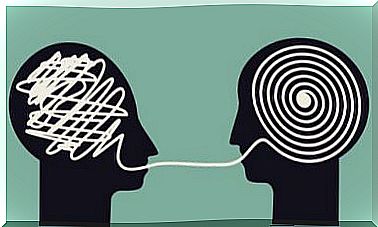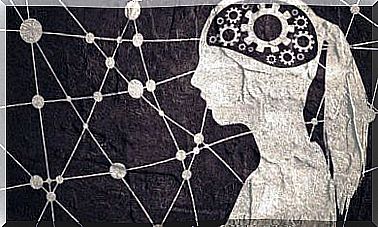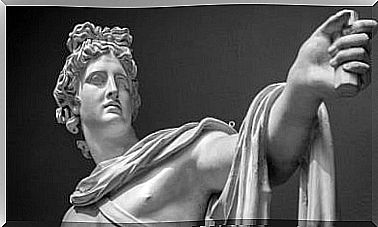Aristotle’s Complex Or Feeling Better Than Others

The Aristotle complex is not a disorder defined as such in the field of psychology or psychiatry. Rather, it is a set of features that popular culture has colloquially defined as complex. It basically corresponds to those who believe that they are always right.
The word complex comes from the Latin root complexus and refers to something that is made up of several elements. Similarly, in psychology the name of complex is given to a condition in which several personality traits are present at the same time and which cause difficulties for an individual.
The main characteristic of the features present in a complex is that they are unconscious. The person does not realize that they have them and if they notice it, they give it a different interpretation. Think, for example, that it is normal to be like this, or that you have valid and objective reasons for being the way you are. Let’s see what specifically the Aristotle complex consists of.
Aristotle a stubborn philosopher
Aristotle is, without a doubt, one of the greatest philosophers of all time. He lived between 384-322 BC, during classical Greece. His approaches and doctrine are so relevant that even today they have great influence on philosophy and the human and biological sciences.

Aristotle was a student of Plato , another of the great Greek philosophers, father of metaphysics. He followed his master wherever he went and was brilliant as an apprentice. Plato always held him in high esteem, until things began to change.
As Aristotle developed his own philosophical doctrine and gained notoriety for it, he began to drift away from his teacher. But not only that. He also began to deviate from his teachings, which Plato did not see with a bad eye.
Over time, he came to assert that Plato’s approaches were unfounded. Many questioned that attitude of Aristotle. It seemed to them that it was an act of disloyalty and pride. It was not a big deal, but the philosopher did remain with that fame.
The Aristotle complex
Based on these episodes in ancient history, some began to speak of the Aristotle complex. They give that nickname to all those who believe they feel better than others and think that they are always right. They differentiate it from the superiority complex because the latter is more related to emotions and the image, while Aristotle’s complex is intellectual.

Those with the Aristotle complex are obsessed with outperforming others intellectually. They engage in long disputes, for no other purpose than to prove that they are smarter, smarter, and more cultured than others. They always test their convictions by leading them to a controversy, hopefully a public one.
Of course, someone who has the Aristotle complex always thinks he is right, but it is not really the most important thing for him. What interests you most is imposing your point of view on others. Get others to see you as someone especially smart.
Complexes don’t lead to anything good
In Aristotle’s complex there is a kind of unsurpassed adolescence. It is at this age when it is decisive for a boy to test his ideas and, above all, to confront or demonstrate the little validity of what the authority figures think, mainly. This process, which is sometimes very annoying for adults, is a way for young people to build and reaffirm their identity.
In the adolescent, as well as in those who have the Aristotle complex, what prevails in the background is a deep insecurity. The desire to be right at all costs and to impose your points of view on others is nothing more than a sign of doubt. They want to overwhelm other ways of seeing reality, because they fear them. They assume that they endanger their own optics and that is why they find it intolerable.

The Aristotle complex is a problem of self-esteem, or if you will, of narcissism. The value and importance of one’s own is overrated, only with the unconscious objective of balancing a feeling of worthlessness. Like those animals that enlarge to appear more intimidating, when they feel in danger. Be that as it may, such exaggerated narcissism only leads to great difficulties over time.









